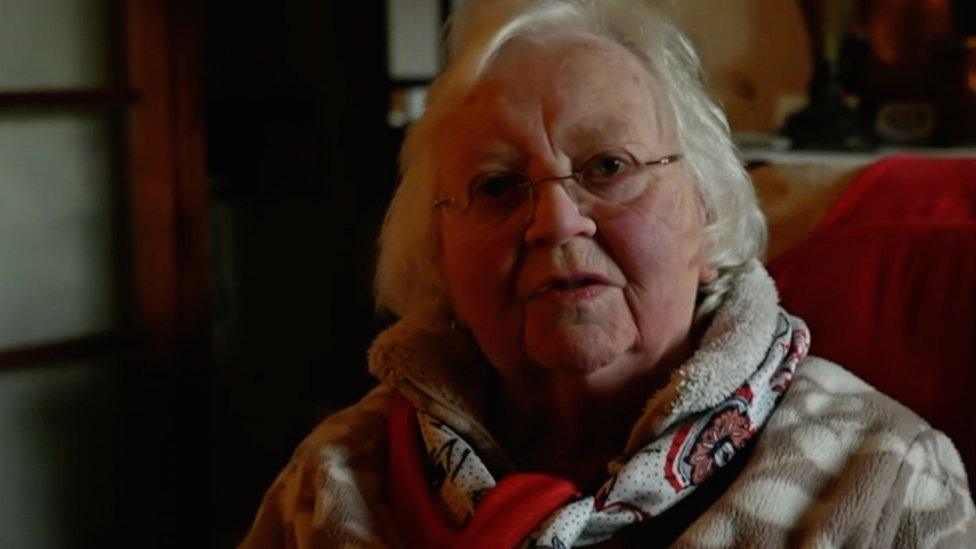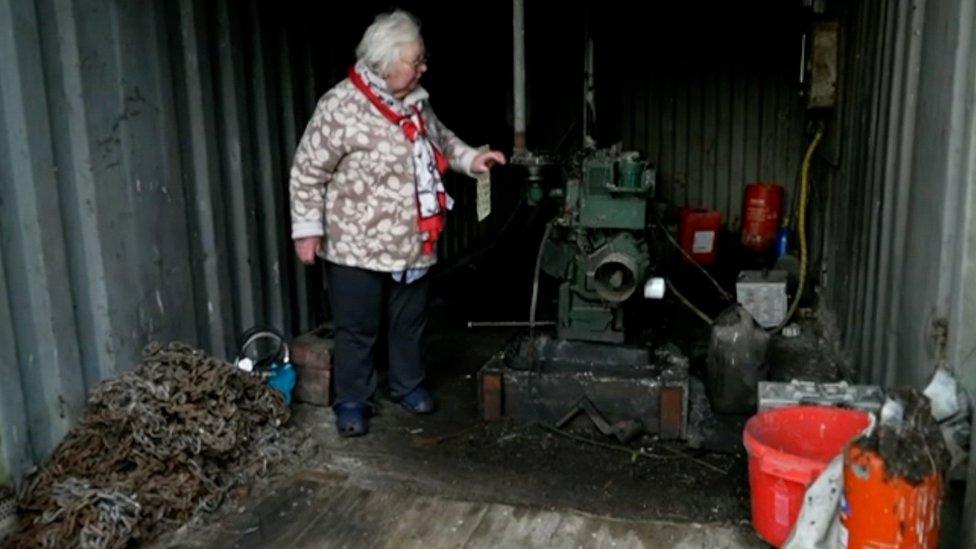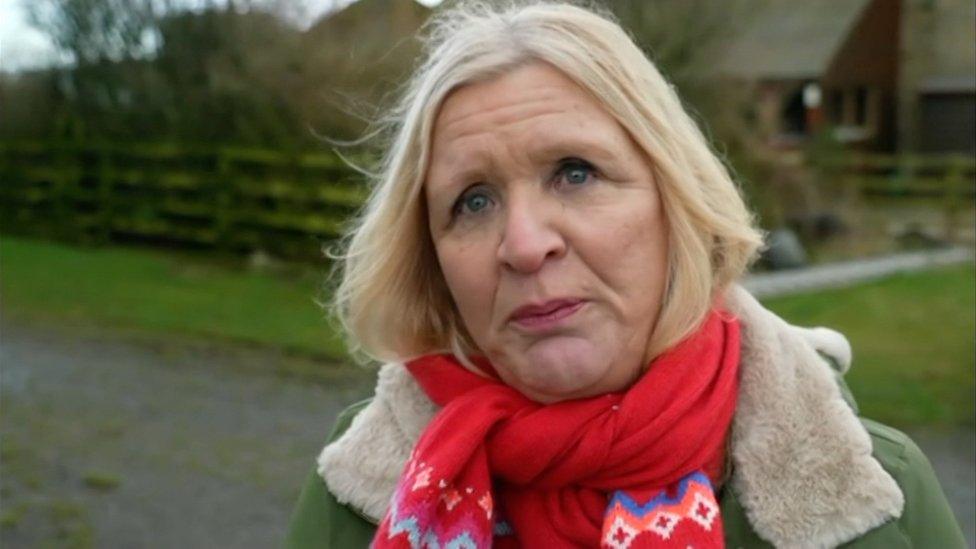Northumberland charity calls for homes to be connected to mains grid
- Published

Anne can't use a high-powered hair dryer and a washing machine as it would trip the generator
Thousands of homes were left in the dark by recent storms, but for hundreds of people in Northumberland, being off-grid is a permanent way of life.
Anne Hutchinson has had no mains electricity, gas or water for 54 years at her rural property.
The 81-year-old says even though she feels "pretty isolated" being off-grid, she has never felt "vulnerable".
Charity Community Action Northumberland (CAN) is calling for more to be done to connect homes to the electricity grid.

Anne's house has been without mains electricity, mains gas or mains water for 54 years
Mrs Hutchinson moved with her husband Tot to the isolated farmstead in 1967.
Tot died in December but despite the challenges of living in such a remote location, Anne says it "feels right" to stay.
"Mains electricity would make it even more viable for me as an older person to stay here," she said.
"Without good neighbours, I don't know what the future might hold.
"I have no intentions of moving but gas and electricity might dictate that I have to move."

Christine Nicholls from CAN is campaigning to get people connected
About 97,000 homes in Northumberland and County Durham suffered power cuts caused by Storm Malik on Saturday and Storm Corrie on Sunday.
According to CAN, it is estimated more than 350 houses in the county are off-grid, with a total of 2,000 across England.
The charity said "very little progress has been made" to get households connected and as the UK makes the "essential shift away from fossil fuels", the situation is becoming "increasingly urgent".
'Wash in a stream'
Community development officer Christine Nicholls said most off-grid households spent about £6,000 a year on power.
"You're getting up in the dark, you're going to bed in the dark," she said.
"Most people run a generator which is pure carbon going up into the atmosphere and that generator probably runs between two and four hours a day
"We've got children having a wash in the local stream, having a bath, washing their hair, because it's easier than generating enough electricity for a shower."

Follow BBC North East & Cumbria on Twitter, external, Facebook, external and Instagram, external. Send your story ideas to northeastandcumbria@bbc.co.uk, external.